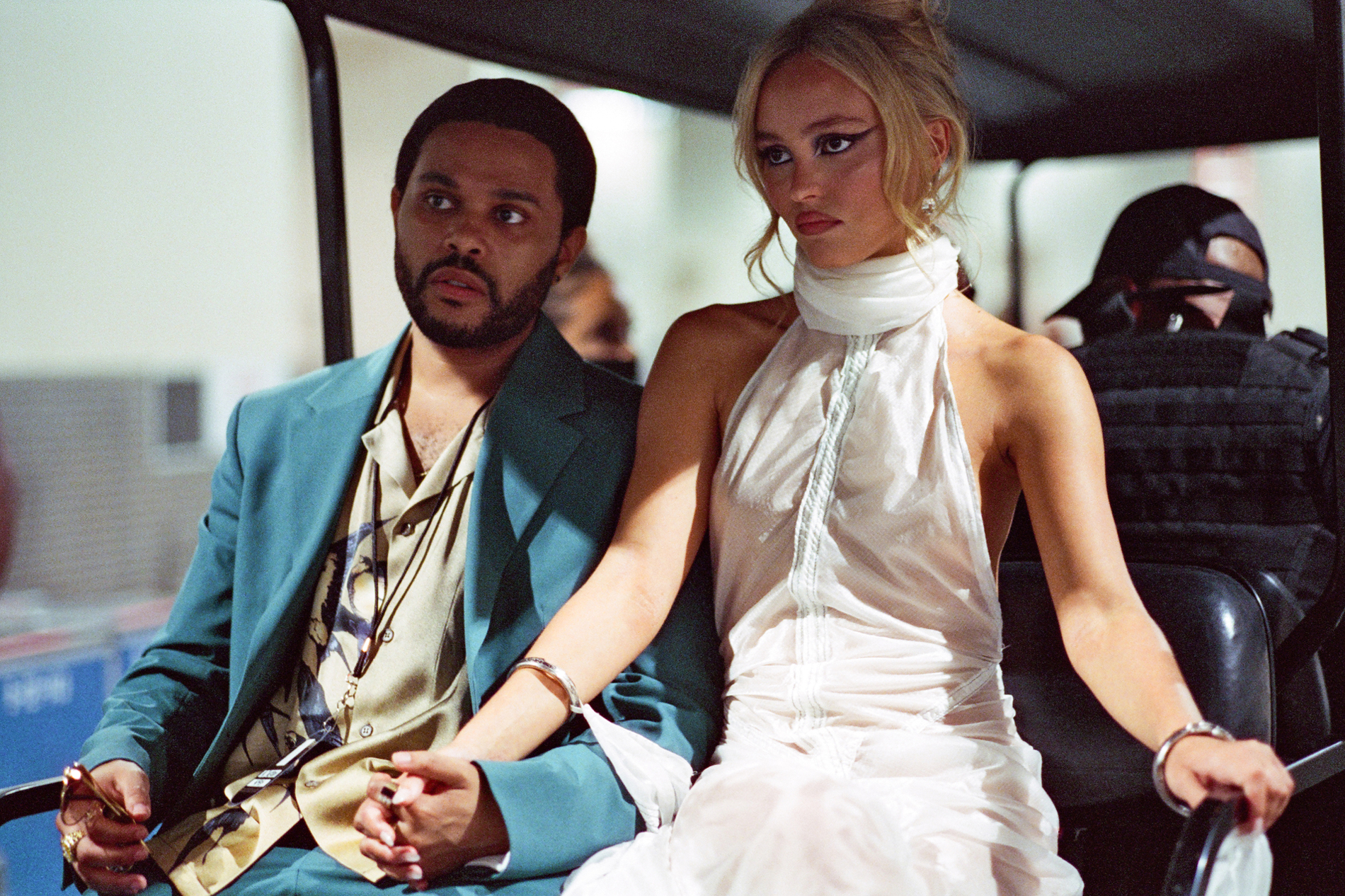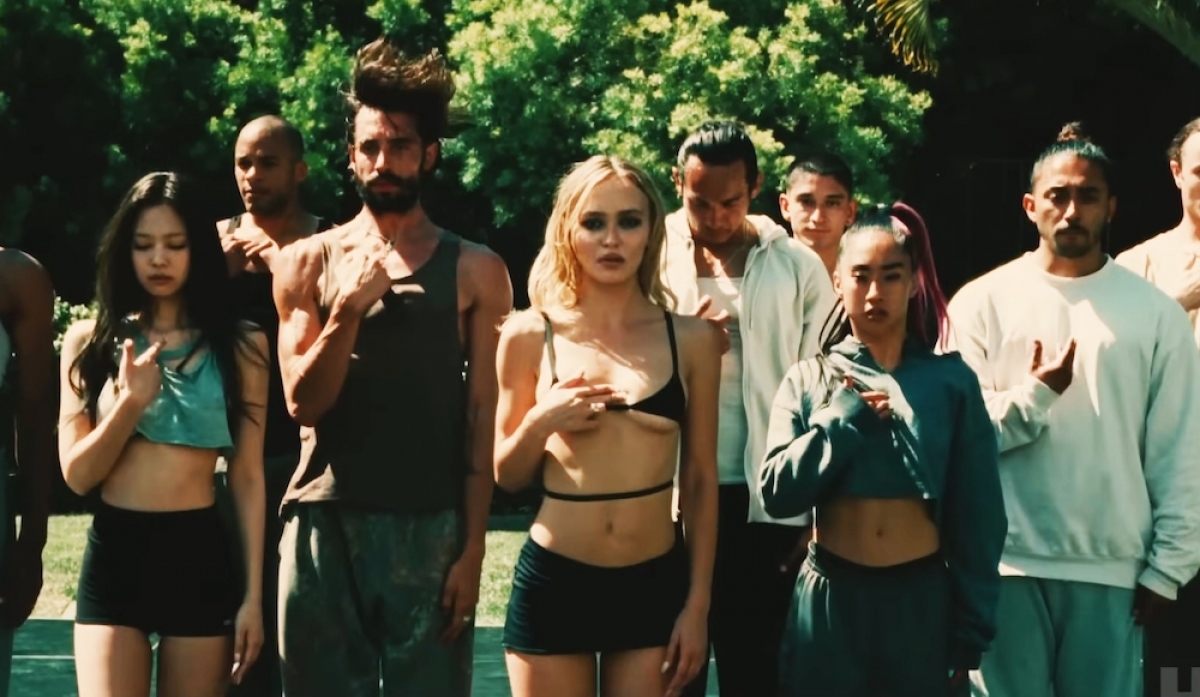This YouTube video commentary humorously critiques the show “The Idol,” executive produced and starred in by The Weeknd (Abel Tesfaye). The narrator expresses disbelief and amusement at the show’s absurd and excessive scenes. Here’s a structured summary of the commentary:

Opening Thoughts
Initial Confusion: The video opens with the narrator addressing the viewer’s confusion, implying that thinking about “The Weeknd” (the artist) might be causing it.
The Weeknd’s Music: Mentions popular songs like “Blinding Lights,” “Starboy,” and “Save Your Tears,” but states the narrator can’t listen to them the same way after watching “The Idol.”

Critique of “The Idol”
Excessive Nudity: The show starts with a lot of nudity, including a spicy nude shoot, interrupted by an intimacy coordinator discussing the nudity clauses.
Leaked Photo Incident: A crisis occurs when the protagonist’s (Jocelyn) nude photo, defaced by an unknown person, gets leaked.
Character Introductions: Jocelyn meets The Weeknd’s character, Tedros, at a club. He expresses love for her within minutes, leading to intimate scenes.
Tedros’ Entrance: Tedros’ dramatic entrance into Jocelyn’s life includes a creepy kiss and a scene where he wraps her head in cloth.

Satire and Plot Development
Failed Music Video: Jocelyn struggles with a music video shoot, leading to a breakdown and her team’s frustration.Manipulation: Tedros manipulates Jocelyn and others, revealing his true intentions to exploit her fame to promote his cult members’ talents.
Conflict and Control: Tedros becomes increasingly controlling and territorial, including a scene where he slaps a chef and asserts dominance.
Personal Opinions and Humorous Remarks
Unbelievable Acting: The narrator finds The Weeknd’s acting unconvincing and forced, contrasting with Lily-Rose Depp’s (Jocelyn) performance.
Awkward Moments: Various awkward and cringe-worthy moments are highlighted, such as Tedros’ exaggerated jealousy and bizarre intimate interactions.
Comparison to 365 Days: The show is compared to “365 Days,” but with an attempt to appear deeper, which the narrator finds ineffective.
Conclusion
Ego Project: The commentary repeatedly points out that the show feels like The Weeknd’s personal ego project, focusing on his character being desired and powerful.
Audience Disconnect: The narrator emphasizes that while the show tries to portray Tedros as alluring and dominant, the audience likely perceives it as awkward and unconvincing.
The narrator’s tone is humorous and critical, making light of the absurdity and over-the-top elements of “The Idol.” The overall impression is that the show’s attempt to blend sensuality, drama, and satire falls flat, resulting in an unintentionally comical experience.
News
Whoopi Goldberg Ejected from “The View” After Defending Megan Rapinoe
In a dramatic and unexpected development, Whoopi Goldberg, a co-host of “The View,” was abruptly removed from the show after vocally supporting Megan Rapinoe during a heated discussion. Goldberg, renowned for her candid and forthright commentary, passionately defended Rapinoe amid…
Riley Gaines Awarded “Woman of the Year” Over Megan Rapinoe
Riley Gaines Awarded “Woman of the Year”: A Controversial Decision In a surprising turn of events, Riley Gaines, a distinguished collegiate swimmer, has been awarded the prestigious “Woman of the Year” title, surpassing the well-known soccer star Megan Rapinoe. This…
WNBA Opens Investigation: Star Caitlin Clark Was “Played Unfairly”?
WNBA Opens Investigation: Star Caitlin Clark Was “Played Unfairly”? In a surprising and significant move, the Women’s National Basketball Association (WNBA) has announced an official investigation into claims that star player Caitlin Clark was “played unfairly” in recent games. This…
Surprise! NCAA strips Lia Thomas of her medal and gives it to Riley Gaines?
In a groundbreaking and decisive move, the National Collegiate Athletic Association (NCAA) announced the complete transfer of all medals awarded to Lia Thomas to fellow swimmer Riley Gaines. This unprecedented decision marks a significant shift in the ongoing discourse surrounding…
Toni Braxton EXPOSES Why She Could Never Marry Birdman
Toni Braxton Calls it Quits: Birdman’s Alleged Secret Life Leads to Breakup Toni Braxton fans were shocked earlier this year when news broke of her split from rapper Birdman. While rumors of a fairytale wedding had swirled for years, Braxton…
Diddy Is FINISHED After SHOCKING Videos Expose Him With Justin Bieber and Jaden Smith
Diddy Hit With Shocking Allegations: Mentor or Manipulator? Sean Combs, better known as Diddy, is no stranger to controversy. However, recent rumors swirling around his past mentorship of Justin Bieber and Jaden Smith have taken things to a new level….
End of content
No more pages to load











